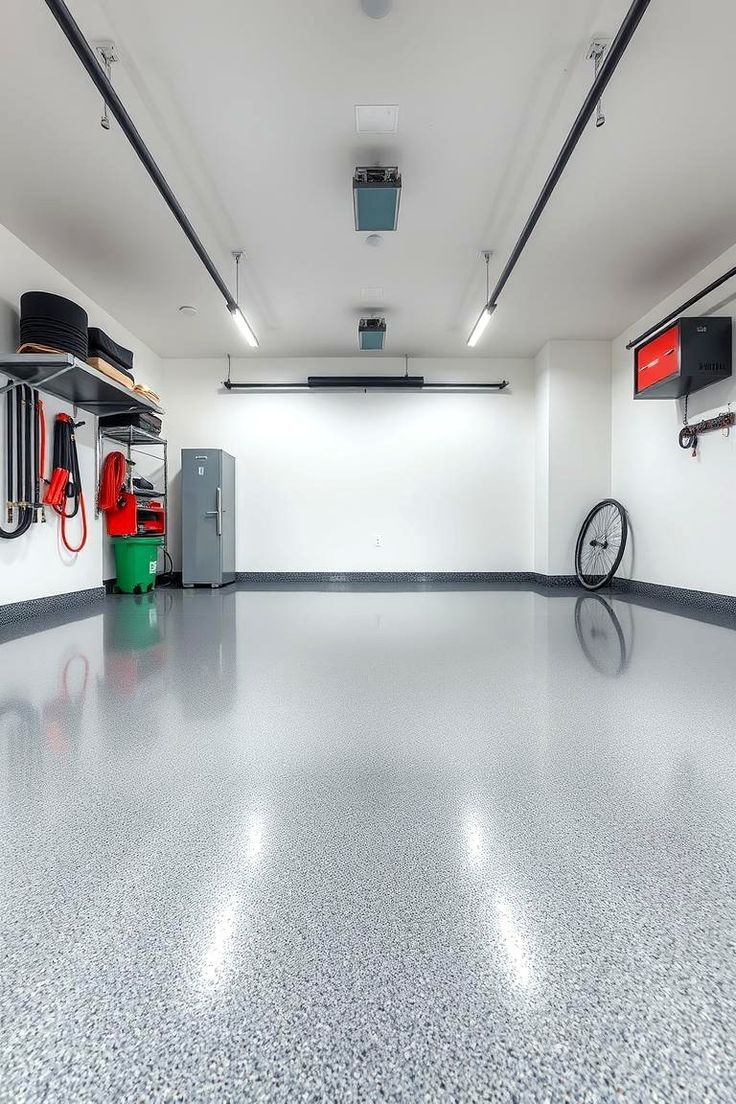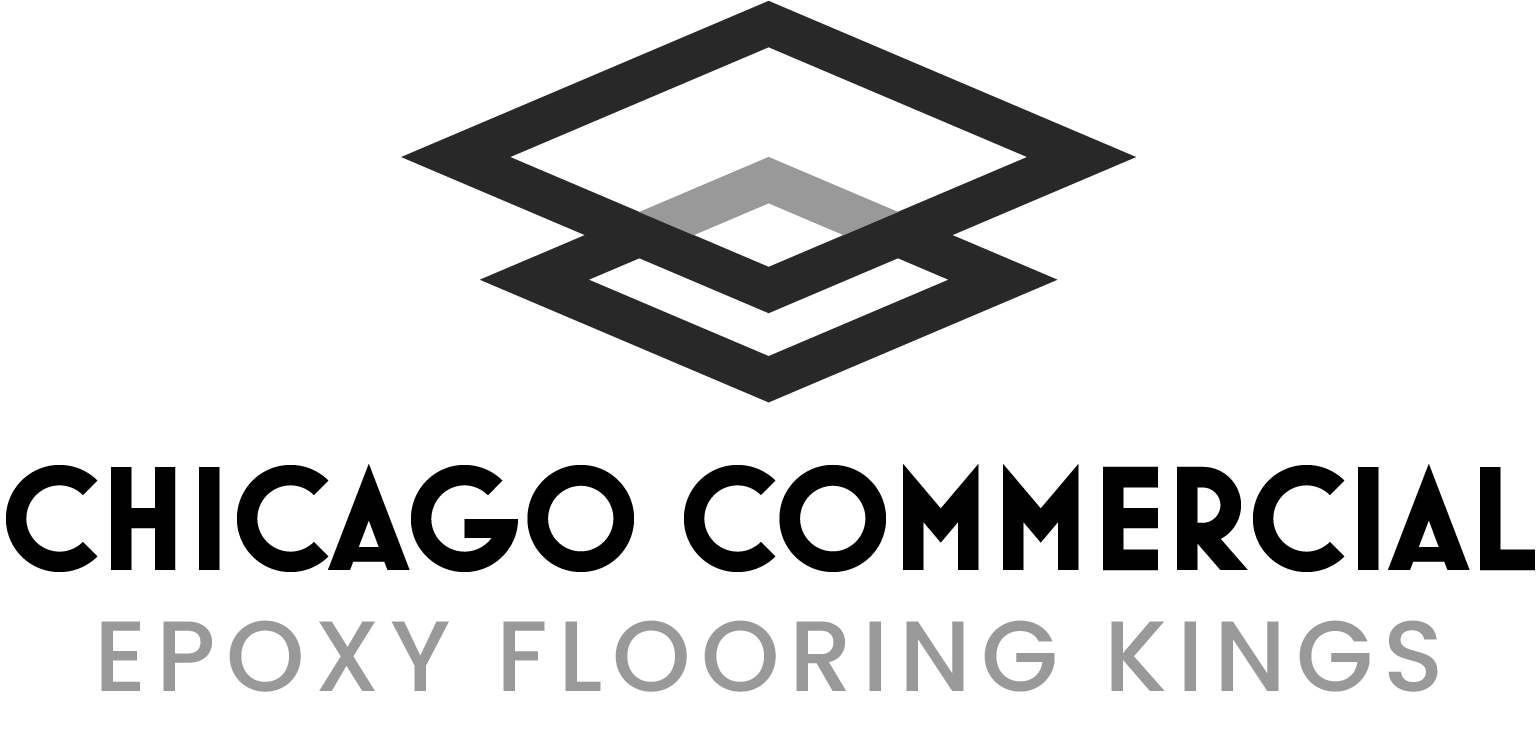Epoxy Flooring for Auto Shops and Dealerships in Chicago, IL
Epoxy flooring for auto shops and dealerships in Chicago, IL is a smart investment because it combines durability, chemical resistance, and easy maintenance. At Chicago Commercial Epoxy Flooring Kings, we specialize in auto shop epoxy floor coatings and dealership epoxy flooring solutions that handle heavy traffic, spills, and constant wear. Our heavy-duty epoxy floors for garages and garage epoxy floor installation services ensure your workspace stays safe, clean, and professional-looking.
We also provide chemical-resistant epoxy flooring for auto shops, seamless epoxy floors for car dealerships, and durable epoxy flooring for automotive facilities designed to withstand oils, chemicals, and heavy equipment. From non-slip epoxy flooring for garages to commercial epoxy floors for auto service centers, our expert installations deliver long-lasting, high-performance flooring that protects your investment while keeping your shop or dealership looking its best.
Our Epoxy Flooring Solutions for Auto Shops and Dealerships
Custom Epoxy Systems for Automotive Environments
Our epoxy coatings are designed to handle the tough conditions in auto shops. They resist oils, gasoline, brake fluids, and other chemicals commonly found in these settings. This protection prevents staining and floor damage.
We offer systems that can withstand heavy machinery and vehicle traffic without cracking or wearing down. The epoxy also makes cleaning faster and easier, which helps maintain a professional work area.
Tailored Designs for Service Areas
We create epoxy floors that fit the style and function of your space. In showrooms, we focus on glossy finishes and colors that highlight vehicles for sale. This boosts the appeal of your inventory.
For service areas, we use more practical designs with matte or textured finishes. These reduce glare from overhead lights. We can add logos or custom color patterns that match your brand identity.
Slip-Resistant and Durable Coatings
Safety is crucial in automotive spaces. Our epoxy floors include slip-resistant additives to reduce the risk of falls. This is important where oil and water spills happen often.
The coatings remain tough even in high-traffic zones. They resist chipping and peeling over time. This means fewer repairs and lower maintenance costs for your business.

Our Design Options for Auto Dealerships
Color and Texture Selections
We provide a wide range of colors for your epoxy floor. From neutral grays and blacks to bright blues or reds, you can pick what fits your dealership’s style. We can also mix colors to create custom blends or patterns.
Texture is important too. We offer smooth finishes for a sleek look or textured surfaces for extra grip. Textured floors help reduce slipping risks while making your space safer for customers and employees.
Branding and Logo Integration
Adding your dealership’s logo directly onto the floor makes a strong impression. We embed logos using high-quality epoxy layers so they last without fading or peeling.
This integration adds professionalism and highlights your brand identity in waiting areas, showrooms, or service bays. We can also create custom designs that match your marketing materials to keep everything consistent.
High-Gloss and Satin Finishes
You can choose between high-gloss or satin finishes depending on the look you want. High-gloss floors reflect more light, creating a bright and polished appearance that highlights cars.
Satin finishes have a softer shine and hide dirt and scratches better. They require less maintenance while still offering durability. Both finish types protect your floor from damage and heavy traffic in an auto dealership.
Our Safety and Compliance Considerations
Non-Slip Additives and Safety Markings
We use non-slip additives in our epoxy flooring to lower the risk of slips and falls. These additives are mixed into the epoxy or applied on top. They create a textured surface that improves grip, even when the floor is wet with oil or water.
Safety markings are also important. We apply clear lines, arrows, and zones to guide foot and vehicle traffic. These markings help prevent accidents by keeping work areas organized and visible. Bright colors like yellow or white are common for safety lines.
Compliance with Industry Standards
Our epoxy floors follow all necessary industry rules and standards. This includes OSHA guidelines for workplace safety and local building codes. We ensure our products meet fire resistance and chemical exposure requirements.
Using compliant materials means our floors are durable and safe under tough conditions. We keep documentation ready to prove that all work meets regulations. This helps maintain your facility’s reputation and avoids costly fines or shutdowns.
Epoxy Flooring for Auto Shops and Dealerships FAQs
What are the advantages of epoxy flooring for auto shops and dealerships?
Epoxy flooring is tough and resists stains, chemicals, and impacts common in auto shops. It creates a smooth, easy-to-clean surface that helps maintain a professional look.
How does epoxy flooring enhance safety and efficiency in automotive workspaces?
Epoxy floors provide slip resistance, reducing accident risks. Their smooth finish allows for easier movement of tools and vehicles, improving workflow and speed.
What maintenance is required to keep epoxy floors in optimal condition?
Regular sweeping and occasional mopping with mild detergent are enough to keep epoxy floors clean. Avoid harsh chemicals and sharp objects that could damage the surface.
Are there customization options available for epoxy floors to match brand identity?
Yes, we offer color matching, logos, and decorative flakes. This lets you align floor design with your business branding.
How does Chicago weather impact the durability of epoxy floors in auto shops?
Epoxy floors hold up well against Chicago’s cold winters and humidity with proper sealing. It is important to protect the floor from extreme temperature changes and salt exposure.
